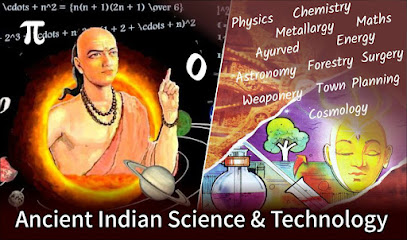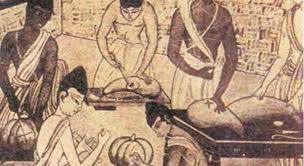The Contributions of Ancient Indian Science to Modern Physics and Mathematics.
India has a rich history of science and mathematics, with ancient Indian scholars making significant contributions to various fields. Many of these contributions are still relevant and used today in modern physics and mathematics. In this article, we will explore the contributions of ancient Indian science to modern physics and mathematics.
The Decimal System and Zero:
One of the most significant contributions of ancient Indian science to mathematics is the decimal system and the concept of zero. The decimal system uses the digits 0-9 to represent all numbers, and it is widely used today in modern mathematics. The concept of zero is also credited to ancient Indian mathematicians, who used it to represent a placeholder in numerical calculations. Without the decimal system and the concept of zero, modern mathematics would not have been possible.
Trigonometry:
Trigonometry is the branch of mathematics that deals with the relationships between the sides and angles of triangles. Ancient Indian mathematicians made significant contributions to trigonometry, with the first known work on trigonometry dating back to the 5th century AD. The sine and cosine functions, which are fundamental to modern trigonometry, were first introduced in ancient Indian mathematics.
Astronomy:
Astronomy was a prominent field of study in ancient India, with scholars making significant contributions to the field. Ancient Indian astronomers were the first to develop the concept of a heliocentric solar system, with the sun as the center of the universe. They also made important observations of the stars and planets, with some of their findings still relevant today.
Ayurveda:
Ayurveda is the ancient Indian system of medicine, which emphasizes a holistic approach to health and wellness. The principles of Ayurveda are based on the idea that the mind, body, and spirit are interconnected, and that optimal health can only be achieved when all three are in balance. Modern medicine has started to recognize the benefits of Ayurvedic practices, such as yoga, meditation, and herbal remedies.
String Theory:
String theory is a theoretical framework in physics that attempts to explain the nature of the universe at the smallest scale. Ancient Indian scholars, particularly in the field of philosophy, had proposed a similar idea thousands of years ago. They suggested that the universe is made up of tiny particles of energy, which vibrate at different frequencies, similar to the concept of string theory.
In conclusion, ancient Indian science has made significant contributions to modern physics and mathematics. From the decimal system and zero to Ayurveda and string theory, the ideas and concepts developed by ancient Indian scholars continue to influence and shape our understanding of the world today. The impact of these contributions is a testament to the ingenuity and intelligence of the ancient Indian civilization, and it serves as a reminder that knowledge and wisdom transcend time and place.








0 Comments:
Post a Comment
Subscribe to Post Comments [Atom]
<< Home